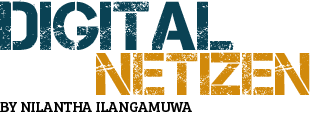Ask yourself
-
Do you check for a secure connection when browsing the Web? Do you know how to recognize one?
-
Are you doing as much to secure your online information as you do your personal property?
-
How many passwords do you use, and how long have you had them?

Cybersecurity explained
As intimidating as it may sound, cybersecurity is actually
really simple: it just means protecting yourself and your information
online.
You can’t prevent every threat out there – online or off.
But you can definitely minimize your risk with some awareness
and common sense.
Build your safety net
Improve your security online with these safety measures recommended by Mozilla policy pros.
Look both ways
The first and most important thing is just to pay close attention to where and when you click.
Trust your gut
If a link or download doesn’t feel quite right, it probably isn’t. Make sure you install programs only from verified trusted sources, and don’t click on anything that looks even remotely suspicious – even when you think you know the source.Watch yourself in public
When you navigate the Web on a public Wi-Fi network, anyone who chooses to snoop can see some or all of your activity. So avoid sensitive activities when surfing in public. And before you share any kind of info anywhere online, think about how it might make you vulnerable.Lock your doors
Strong password practices are your single best protection against almost every kind of threat on the Web.
Choose strong PINs and passwords
Here are some Mozilla tips for creating a strong password for every device and account. And get in the habit of changing your passwords once a year.Don’t use a single password everywhere
Would you use the same key for your front door, your car, and your safety deposit box? Probably not. Keep track with a password manager instead.Do the two-step
For the best protection, take advantage of 2-step authentication wherever it’s offered. Find out more.In case of emergency
Here’s what to do if you think your account has been compromised.Fix it before it breaks
Software updates are like oil changes – they can be a hassle in the moment, but a lifesaver in hindsight. Update apps and devices regularly to take advantage of developers’ latest and greatest security enhancements.
Install a security system
Now that you’ve handled the basics, set the alarm. These programs prevent and protect against cyber surprises.
Anti-virus software
It won’t protect against everything, but it’s a good start. Here are two free options:Firefox Add-ons
These add-ons will help you identify what you’re clicking before you click:- Long URL please — replaces most shortened URLs with the originals so you know the destination
- URL Tooltip — displays the destination of a link when hovering over it
Blast your cybersecurity smarts
The more we talk, share tips and stay alert about cybersecurity,
the safer we all are.
Keep the conversation going with your community on social media,
at home — maybe even on that public Wi-Fi at the airport.
























0 comments